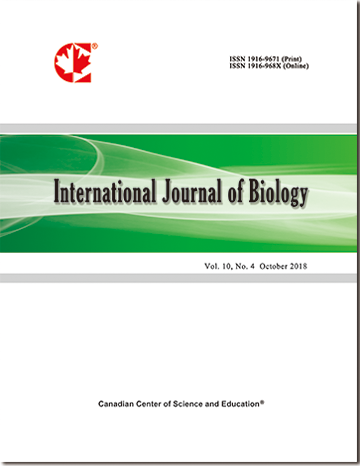The Physiology and Biochemistry of the Digestion System of Termites from the Genus Anacanthotermes Jacobson, 1904
- Ikram I. Abdullaev
- Manzura B. Doschanova
- Zafar Sh. Matyakubov
- Abdulla I. Iskandarov
- Feruza R. Rakhimbaeva
Abstract
A variety of morphological and functional features of the digestive system of termites is associated with their nutritional adaptation. Wood is mostly the food of termites’ adult larvae, workers and young nymphs. The salivary and intestinal enzymes play an important part in this process. The physiology and biochemistry of the digestion system of termites from the genus Anacanthotermes is still not fully studied. In the present research, we studied the activity of some carbohydrases in termites’ salivary glands. Our data show that the activity of exocellulase in adult termites is 1.5 times more that in young individuals and 3 times more active than in nymphs, while the exocellulase in soldiers remains inactive. Moreover, the activity of celluloses in the intestine of A. turkestanicus is still not fully studied. We observed that exocellulase is involved in the digestion of food polymers in the castes of termites-workers, nymphs and soldiers. Thus, cellulase activity in the intestinal tissue (intrinsic) is manifested at a very low level in all termites’ castes we studied. However, the activity of exocellulase in the intestinal cavity (symbiotic) increases 3.5 times in workers, 3.0 times in nymphs and 2.4 times in soldiers compared to that in intestinal tissue. In addition, the intrinsic activity of this enzyme differed little in all three castes of termites, whereas the symbiotic activity in workers and nymphs was more showed than in soldiers.
- Full Text:
 PDF
PDF
- DOI:10.5539/ijb.v11n4p1
Index
- ACNP
- AGRICOLA
- BASE (Bielefeld Academic Search Engine)
- CAB Abstracts
- CiteFactor
- CNKI Scholar
- CrossRef
- DTU Library
- Elektronische Zeitschriftenbibliothek (EZB)
- Excellence in Research for Australia (ERA)
- Google Scholar
- Infotrieve
- LIVIVO (ZB MED)
- LOCKSS
- Max Planck Institutes
- MIAR
- PKP Open Archives Harvester
- Qualis/CAPES
- ResearchGate
- ROAD
- SafetyLit
- SHERPA/RoMEO
- Technische Informationsbibliothek (TIB)
- Universe Digital Library
- WorldCat
Contact
- Ryan JonesEditorial Assistant
- ijb@ccsenet.org
